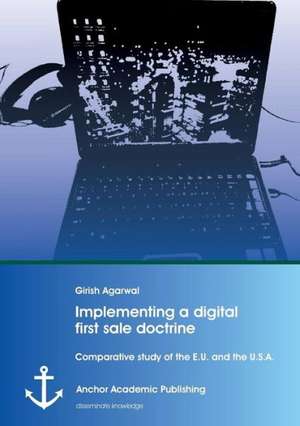Implementing a digital first sale doctrine: Comparative study of the E.U. and the U.S.A.
Autor Girish Agarwalen Limba Engleză Paperback – 11 feb 2015
Preț: 394.40 lei
Nou
Puncte Express: 592
Preț estimativ în valută:
75.48€ • 78.51$ • 62.31£
75.48€ • 78.51$ • 62.31£
Carte tipărită la comandă
Livrare economică 15-29 aprilie
Preluare comenzi: 021 569.72.76
Specificații
ISBN-13: 9783954893485
ISBN-10: 3954893487
Pagini: 52
Dimensiuni: 155 x 220 x 5 mm
Greutate: 0.08 kg
Editura: Anchor Academic Publishing
ISBN-10: 3954893487
Pagini: 52
Dimensiuni: 155 x 220 x 5 mm
Greutate: 0.08 kg
Editura: Anchor Academic Publishing
Notă biografică
My journey as a student begins in a British boarding school, although adding the word British is inappropriate today. Then, India was under the British Raj and St. Paul's School, Darjeeling, located at the foothills of the Kanchenjunga, a place for the British aristocrats and India's Royal's. It was known at that time as Eton of the East. Much has changed since then because of the political turmoil in the region.













